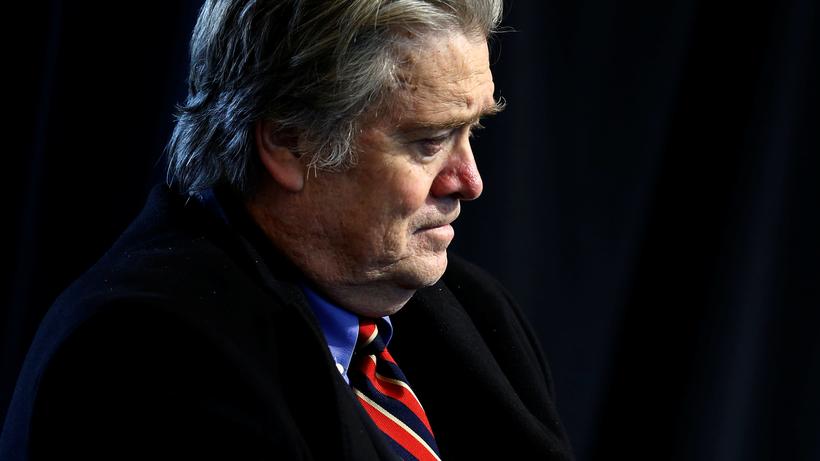
The United States’ Spectacular Failure on the Korean Peninsula
The Democratic People’s Republic of Korea and the Republic of Korea held their first official telephone conversation since 2015. The initiator of this diplomatic maneuver is North Korean leader Kim Jong Un, who, during his half-hour New Year's speech, demonstrated willingness to talk with Seoul for the first time. His words served as a turning point after a year-round tendency of ever increasing tension. The sharp turn toward a warmer relationship between the two countries managed to cause a complete avalanche of events. North Korea announced that it is going to restore the hot military line with its southern neighbor, and South Korea itself offered to revive military negotiations between the two countries and consider temporarily lifting certain sanctions against Pyongyang.
On Tuesday, Jan. 9, the first official talks between the two Korean states were held, which ended with news that North Korea will participate in the forthcoming Winter Olympic Games in the South Korean city of PyeongChang. North Korea is expected to send not only athletes, but also senior representatives of the Pyongyang regime as part of the delegation.
The news about reducing tensions on the Korean Peninsula was warmly welcomed by the international community, but met a lukewarm response from Washington. The United States, which has 30,000 troops in South Korea, has experienced a tremendous foreign policy failure and has lost the strategic initiative. Yet again with his New Year's Eve speech, the North Korean leader Kim showed understanding toward South Korea, but did not miss the opportunity to wave a finger at Washington as a reminder that the nuclear button is permanently located on the table next to him.
The cunning strategy that Pyongyang has employed in the past few years has now left the United States in a difficult position. For months on end, North Korea has worked on its missile and nuclear powers, and has succeeded in implementing systems capable of delivering a nuclear strike on United States territory, a powerful deterrence factor guaranteeing, to a larger extent, Pyongyang’s sovereignty with respect to an attack from Washington. At the same time, Kim has demonstrated determination, which has additionally intensified the tension. After gaining an important strategic position in the crisis involving the acquisition of modern nuclear and missile technology, Pyongyang has taken the initiative on the peninsula, and can complicate the situation for Washington by embarking on a policy of de-escalating tension.
It sounds incredible, but it seems that North Korea has outsmarted U.S. intelligence, The New York Times reported at the beginning of the year. According to the Times, intelligence sources have been cruelly misled. The CIA and other agencies have reported that seven of the eight medium range missiles fired in 2016 exploded or fell apart during flight, due to former President Barack Obama's program of sabotage. North Korea carried out five underground tests that gave Washington experts reason to conclude that the regime is years away in developing, and will not be able to create, a hydrogen bomb, according to U.S. intelligence. It appears that Pyongyang artfully deceived U.S. intelligence about its military capacity, and a few months later was able to acquire powerful missile and nuclear technology. The Pentagon did not properly assess the threat (in a reverse scenario, this would have inevitably led to a military strike against Pyongyang), but today the regime has the means to cause unacceptable damage to the United States, casting doubt upon the adequacy of the military campaign against North Korea. The U.S. intelligence community’s problem is that it expected this to happen in few decades, The New York Times pointed out, defining this error as one of the biggest failures in the CIA's history. This omission helps us comprehend the confusion and conflicting signals coming from the president's administration in the midst of the crisis, the Times reported.
Donald Trump’s administration and members of Obama's former administration have been publicly pointing fingers at each other and blaming each other for the mistake. Trump himself has commented that he inherited the mess in North Korea, highlighting Obama's warning during the inauguration ceremony that North Korea would become a threat to U.S. national security. Regardless of who is to blame, the acquisition of nuclear weapons, which holds back potential U.S. involvement, presents the Korean Peninsula with a new situation. The initiative is in the hands of Kim, who has increased his room to maneuver. We are witnessing an attempt by Pyongyang to weaken Washington’s influence over its southern neighbor.
Kim’s goal is to drive a wedge between the United States and South Korea, but Washington will not allow this to happen, according to comments by State Department spokeswoman Heather Nauert at a press briefing. Ultimately, the United States' fears may be well founded in that Pyongyang’s maneuver is not linked so much with the peace negotiations as with North Korea and China's efforts to push the United States out of the Korean Peninsula. In their attempts to distance South Korean political leadership from Trump, the two countries are likely to propose reducing the tension and strengthening the economic and transportation links between the North and the South. By its nervous reactions to the mutual Korean negotiations, the U.S. diplomatic corps acknowledged that they could hardly play a major role in the process, but warned Seoul that the United States does not believe Kim is honest or that he can be trusted.


